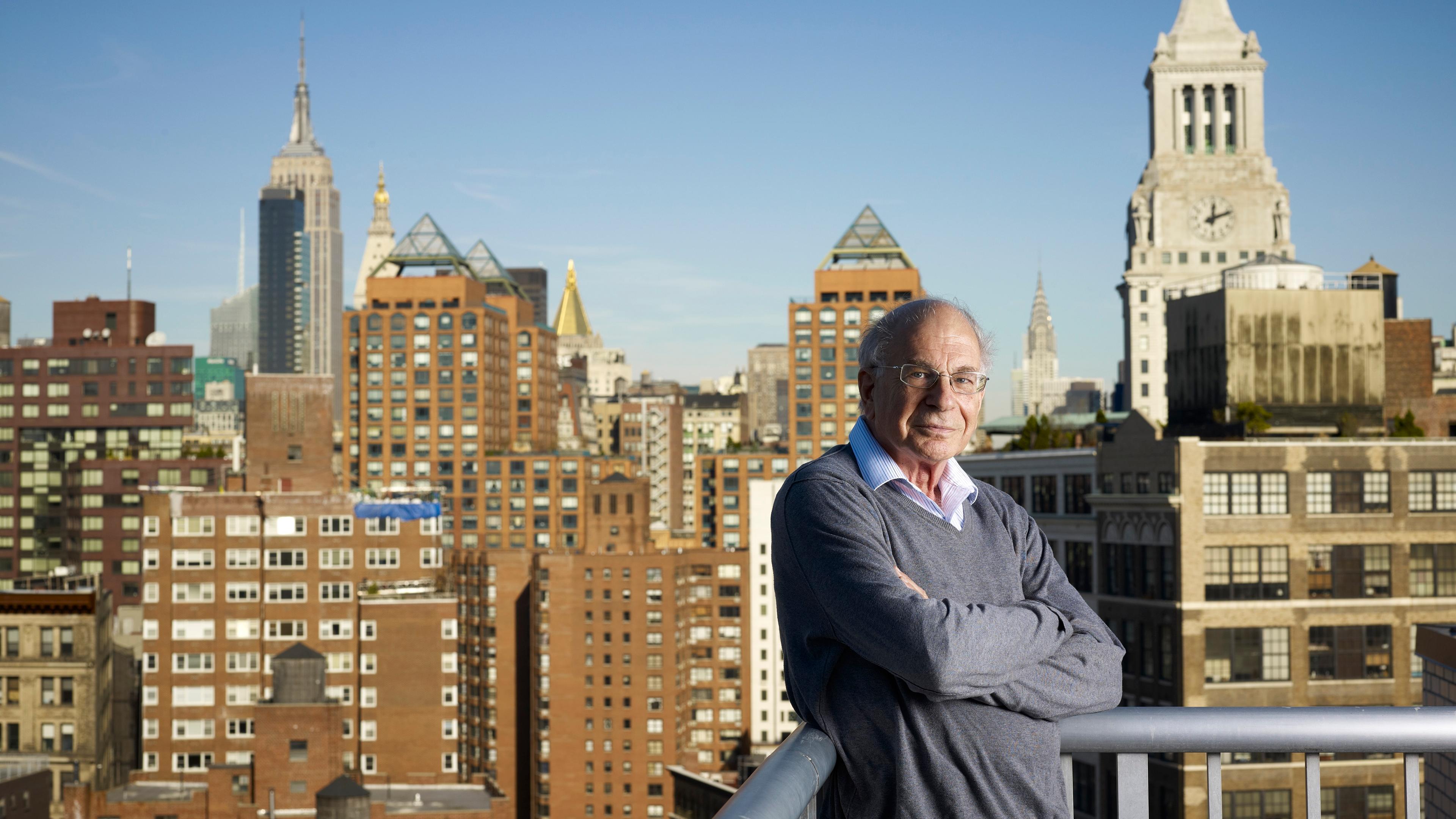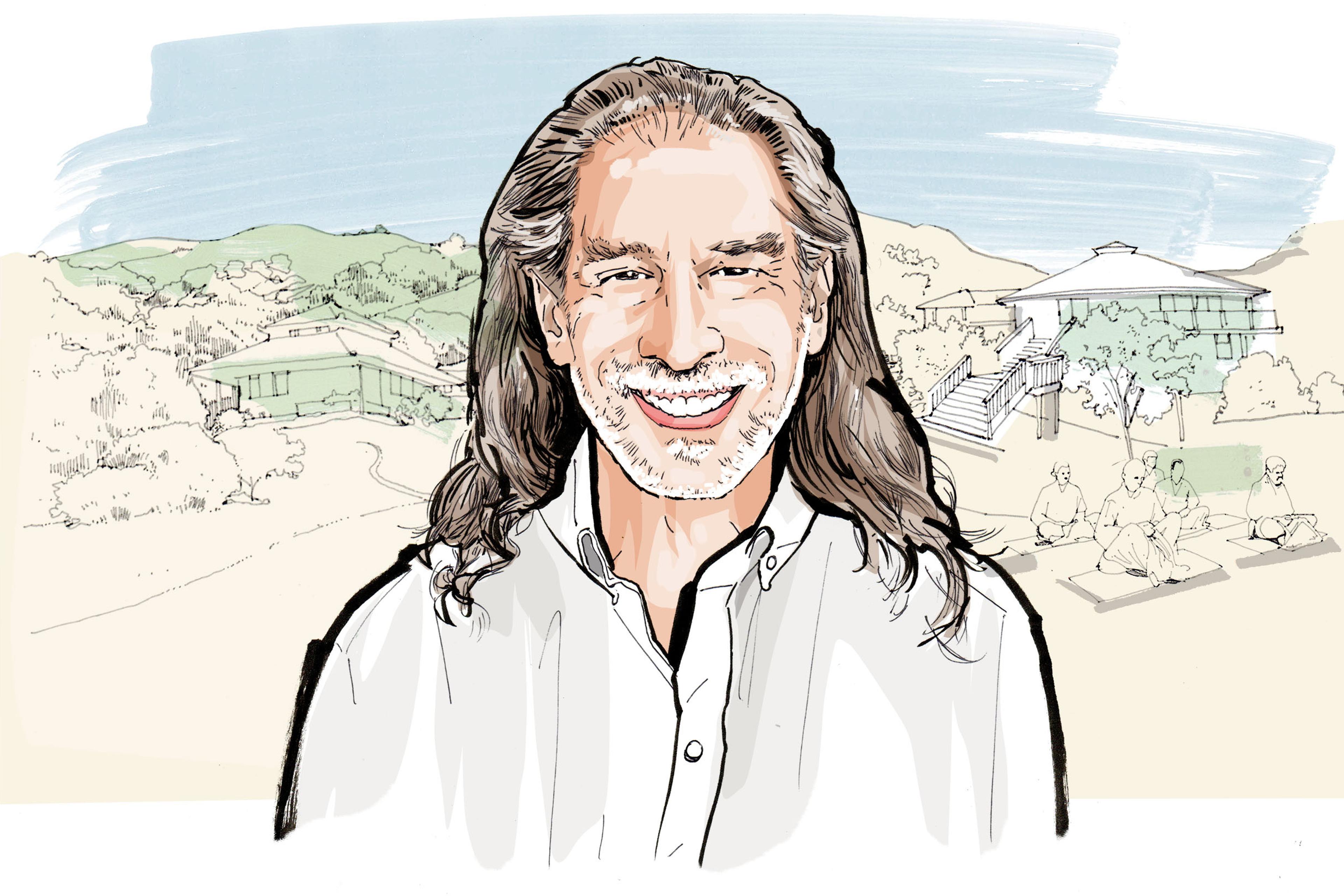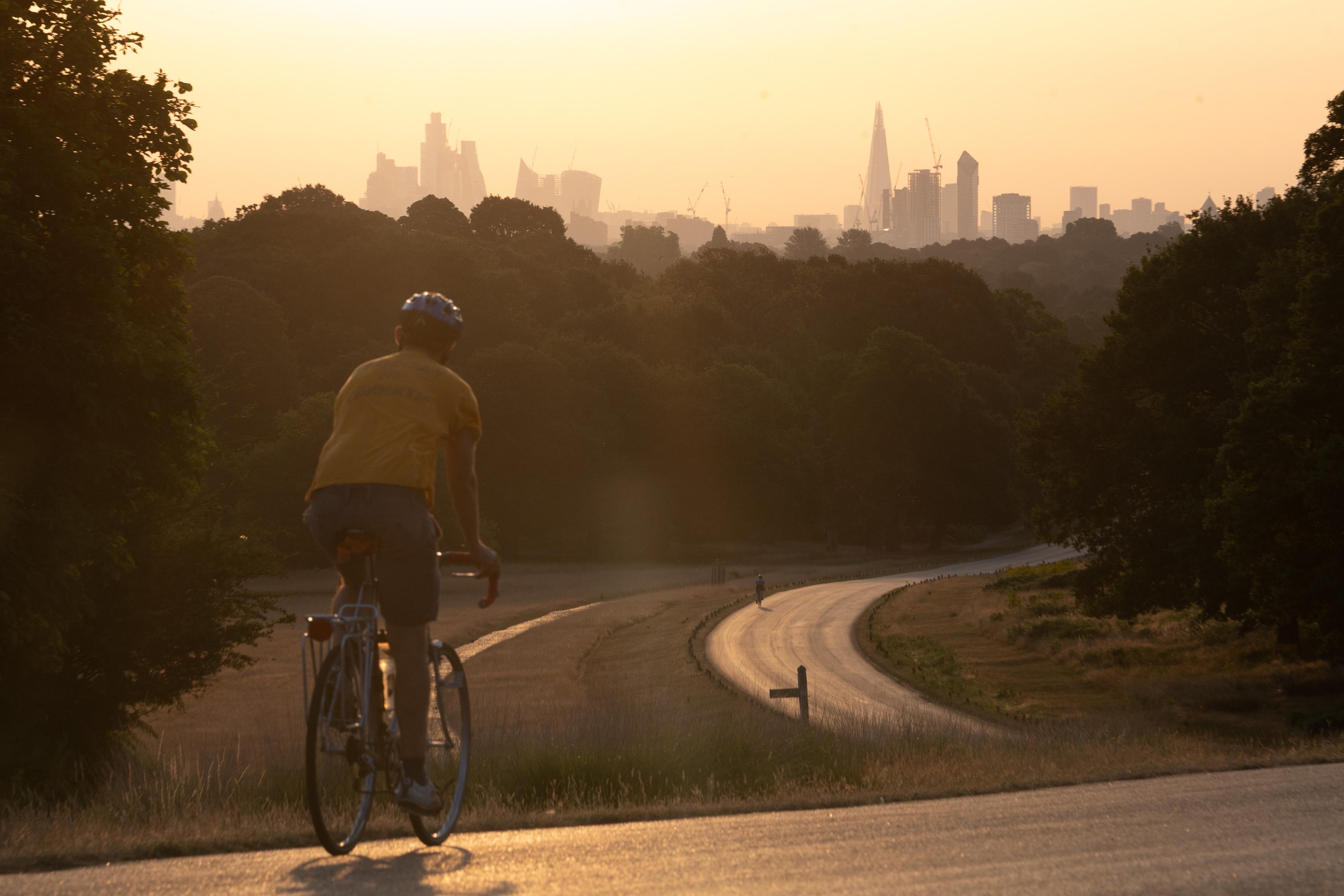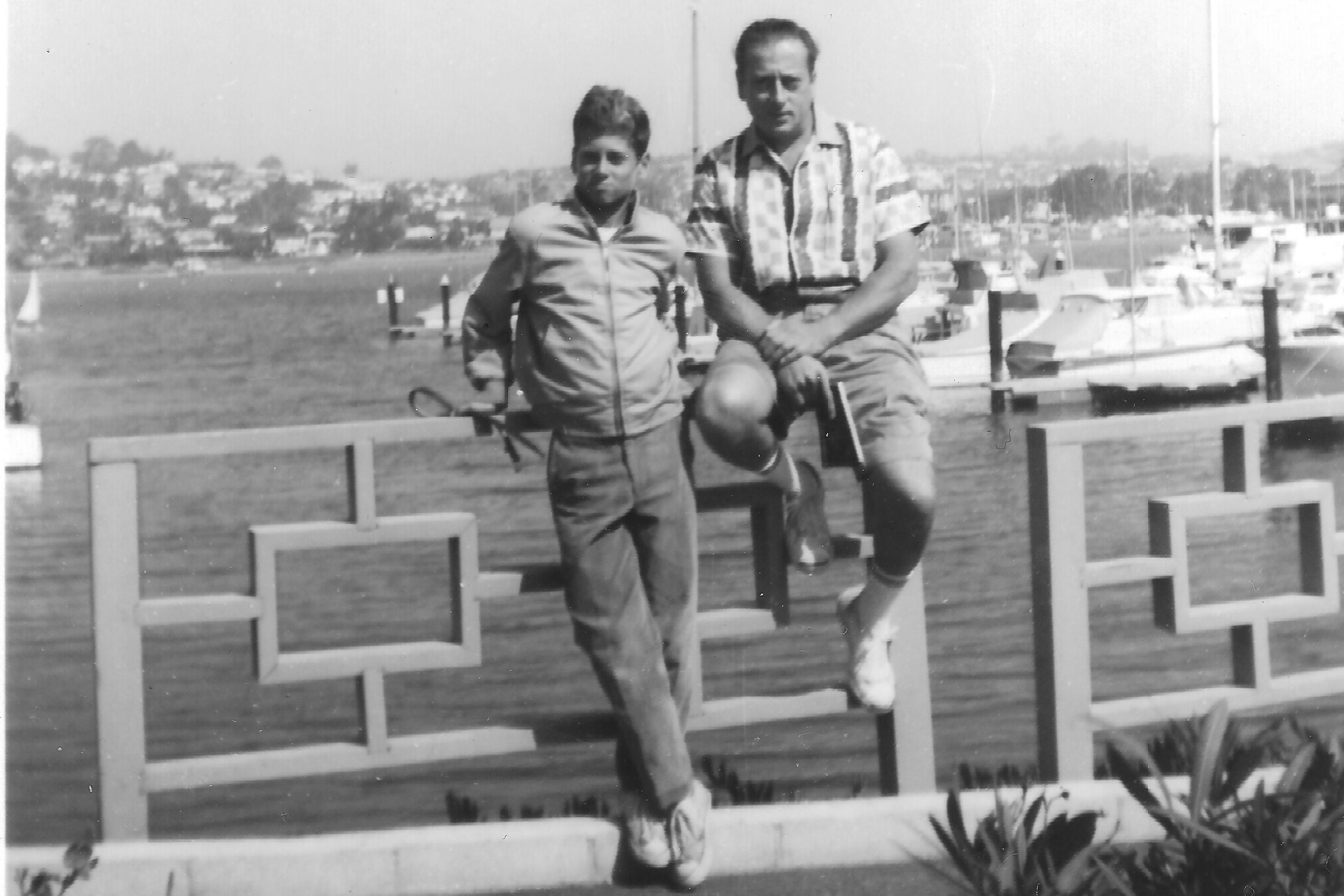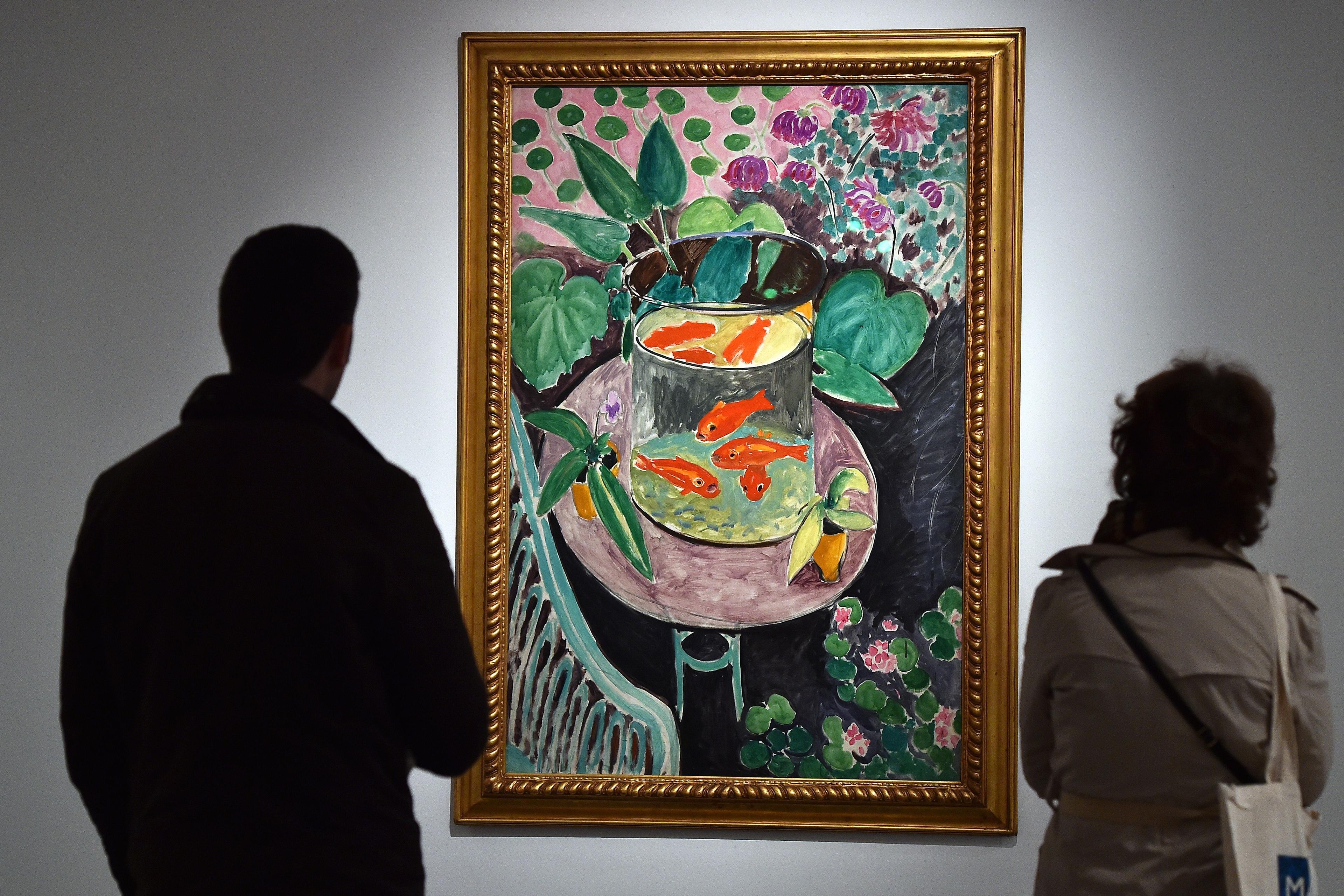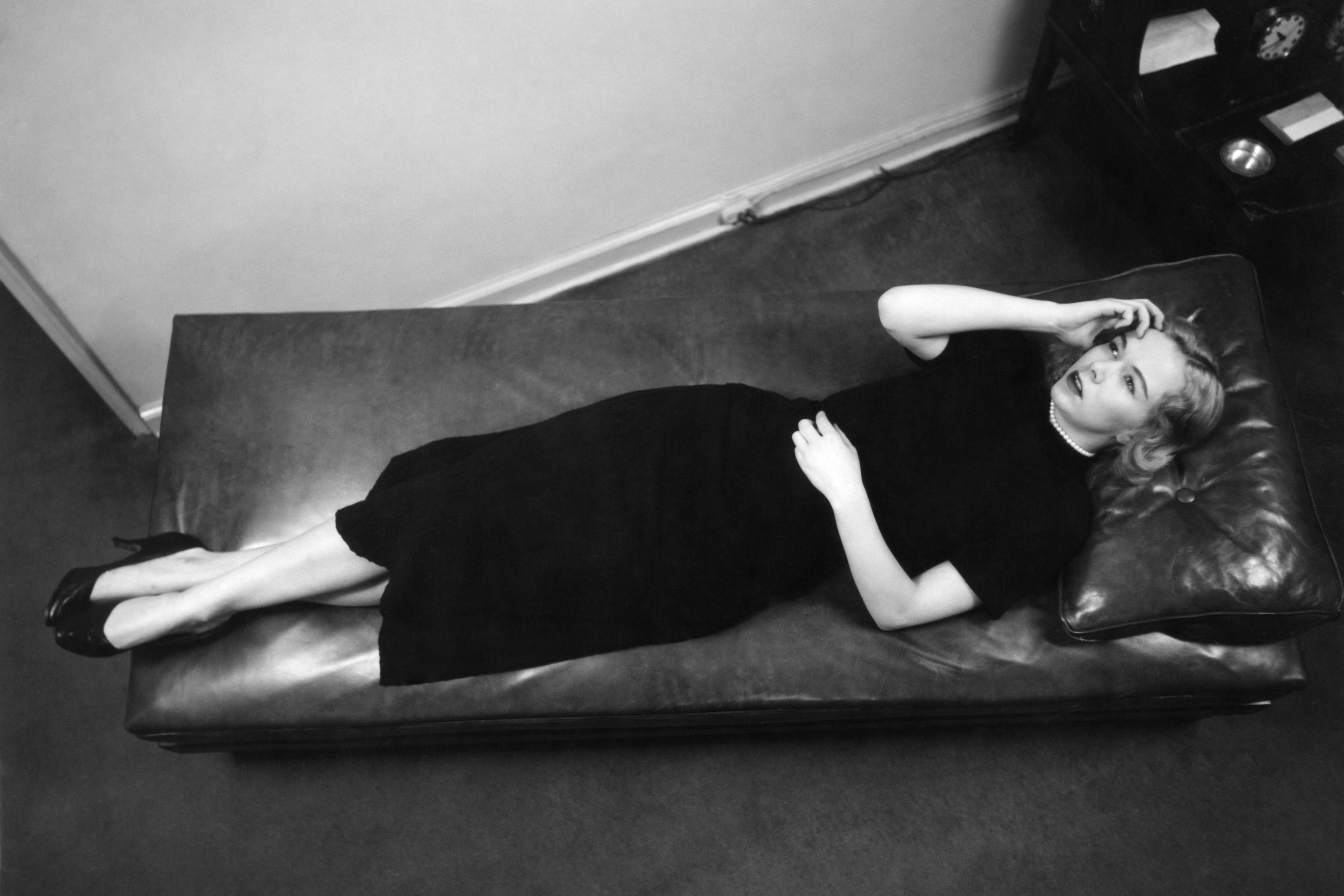The day I met Daniel Kahneman, he had asked me to join him for lunch at the Bowery Road restaurant in Lower Manhattan. Danny proposed this venue because it has comfortable booths and ‘is mostly deserted’. I arrived 15 minutes early, palms sweaty with the anticipation of meeting the world’s most famous psychologist. He had agreed to discuss making a film of his life’s work. I’d been preparing my pitch all week, and had brought a stack of notes with me to the restaurant. Half an hour passed, and he hadn’t arrived. I sent his secretary an email. Another 45 minutes ticked by before I abandoned hope. I headed back uptown, expectations shot.
As I walked through the apartment door, my phone buzzed. Danny’s name shone on the caller ID. ‘I’m terribly sorry,’ he said as soon as I answered. ‘Please tell me where to find you.’ I told him I could head back downtown in a few minutes. Before hanging up, he apologised once more: ‘I’m very sorry. This doesn’t usually happen. But I sometimes make mistakes.’
Kahneman, who died on 27 March 2024 at the age of 90, spent his life thinking about mistakes. It made him an academic superstar, occupying a more prominent place in the public consciousness than any other scholar of the mind, perhaps since Sigmund Freud. The week Danny died, I was in Tennessee visiting an artist friend, with whom most conversations lamentably involve either astrology or celebrity gossip. Yet I noticed Kahneman’s bestseller Thinking, Fast and Slow (2011) up on their bookshelf, nestled between Fifty Shades of Grey and a Dolly Parton biography. Kahneman was inescapable.
His ideas about human thinking and behaviour – largely dealing with their imperfections – infiltrated fields from health policy to politics, casino gambling to baseball. His impact was perhaps most dramatic in economics, the discipline for which he won the Nobel Prize in 2002. He often joked about the fact that he had never even taken an economics class. He described his influence on that field, and on every other, as entirely accidental. He was just trying to have fun with his work, and answer some questions about the human mind along the way.
I went back downtown, and met Danny outside his apartment near Union Square. I found him leaning unceremoniously against a lamp post, staring down at his cellphone. He looked… completely normal? Mild and unassuming. Posed casually like a coy teenager, rather than a man in his ninth decade of life with a Nobel Prize and a Presidential Medal of Freedom under his belt. A survivor of the Holocaust, the Yom Kippur War, and years of professorship at Berkeley. But here, in this city where nobody pays you any attention, he was just a man in the crowd. I had to walk by three times to make sure it was really him. Finally convinced, I worked up courage to say hello.
After another round of apologies, Danny suggested we go eat at a fast-casual joint down the street. I followed him as he weaved his way nimbly through the Manhattan crowd, cutting across the middle of Broadway as if crosswalks had not been invented, dodging cars like a true New Yorker. ‘I love the city,’ he told me, and I believed him. His stride was assured and aggressive – intimidating to a fresh urbanite like me. He was 88. I was 24 and struggling to keep up.
Few people could ever truly keep up with Kahneman, with one notable exception. The work for which he won his Nobel Prize was conducted largely alongside his research partner, the Israeli psychologist Amos Tversky. Throughout the 1960s and ’70s, the pair spent endless hours quietly locked away in one another’s offices at the Hebrew University of Jerusalem, pitching each other outrageous hypothetical scenarios that could identify gaps in human rationality.
Danny and I had agreed to have lunch because we were interested in the possibility of representing such irrationality on film. There was a certain cinematic quality to many of the thought experiments that Kahneman and Tversky generated during the course of their partnership.
Here’s a version of one, first described in 1986, designed to illustrate how we experience regret: imagine Amos and Danny flying out of Jerusalem Airport on two different planes that are departing at the same time. They travel to the airport together in the same taxi, get caught in the same traffic, and arrive at the airport 30 minutes after their scheduled departures. But Danny is told his flight left on time, while Amos is told his flight was delayed and left only three minutes ago. Objectively, rationally, their reactions should be the same because their experiences were akin – yet Amos is far more upset. The pair chalk up the difference to the ease with which Amos could envision things having gone differently – it’s not hard to imagine saving three minutes somewhere in your day.
Their work challenged the long-standing belief that humans are logical, value-maximising creatures
But without compelling characters inhabiting these scenarios, they would likely do little to stimulate a film-going audience. Seated in a quiet corner of our diner, I asked Danny if he thought he could be such a character. He had survived Nazi occupation as a child, fought for his budding country, and worked with his best friend to revolutionise our understanding of the human mind. Why not develop a biopic? Danny, however, didn’t attribute any of his success to his early-in-life traumas. ‘Truly, we just got very lucky,’ he insisted between slurps of his tomato gazpacho. ‘There really wasn’t much drama.’ But, ultimately, he and I finished up our lunch agreeing that, somewhere in that lucky streak, there was a decent story to be told.
Tversky died in 1996 of malignant melanoma. He and Kahneman had experienced something of a falling out in years prior, as success had pulled them in different directions away from Jerusalem and away from each other. But the two had patched things up before Tversky’s death. Since the Nobel Prize cannot be awarded posthumously, Kahneman had to accept the award as an individual in 2002. But everyone, especially Danny, knew it was for the labour they had shared. ‘The work on which this award was given was done jointly with Amos Tversky,’ he told the crowd of dignitaries before him in Stockholm. ‘He should have been here.’
That work ultimately challenged the long-standing belief in economics that humans are logical, value-maximising creatures. Through the roster of creative and ingenious research scenarios the duo designed in the early 1970s, they showed that this assumption is often untrue.
Here is one: ask someone which they would rather have – $500 guaranteed; or a 50/50 shot at winning $1,000. Most of us would go with the security of the first option. But then ask the same question in a slightly different way: would you rather lose $500 for sure; or take a 50/50 bet of losing $1,000. Suddenly, for most people, their answers flip. A guaranteed loss doesn’t feel too good. And yet, in economics terms, it’s the same question asked twice, just in a slightly different way. Kahneman and Tversky revealed that it is the framing of a scenario that affects our response to it, rather than an objective analysis of the risks. This simple insight set the field of economics ablaze for the next half a century.
Later in life, Kahneman turned his attention away from fallibility to the question of happiness. His work produced another canon of insights, destabilising our assumptions about the kind of experiences that lead to lasting satisfaction. For instance, imagine plunging your hand into a bucket of ice-cold water for as long as you can bear it. The more time you keep it submerged, the more pain you endure. But think back on the experience once it’s over, and it turns out that your memory of the discomfort will have little to do with the length of time you braved the pain, and much more to do with the peak moments of your suffering and whatever you were feeling in the final seconds of the experience.
Together with others, Kahneman synthesised this idea into ‘the peak-end rule’: we end up remembering only what is most extreme and most recent. He built upon this evidence to develop a distinction between the experiencing self and the remembering self. Kahneman believed that humans often sacrifice the momentary pleasure felt by the former in order to maximise the satisfaction borne by the latter. We don’t want to live a good life. We want to remember having lived a good life.
To anyone who knew Danny well, his concern with happiness and satisfaction seemed somewhat out of place. As a chronic pessimist, he had trained himself to expect the absolute worst of any scenario, so that reality wouldn’t hurt as much when it finally came for him. Three weeks before his death, when he informed me that he was dying, the email was characteristically nonchalant: ‘My kidneys are beginning to fail, and there is no time left for projects. All the best…’ Those were the last words he sent me. Reading it over, I can’t help but chuckle at his non-sentimentality.
It is the relationships we maintain that determine how long and how well we live
Though, looking back, perhaps my own optimism hasn’t served me as well as Danny’s pessimism served him. During our lunch, Danny advised me that, if I wanted to produce a film about his work, I would have to move on it fast. ‘I’m turning 89 soon,’ he said coolly. But I didn’t listen. I was confident we had time, and put the project on the backburner. Had I possessed some of Danny’s blunt pragmatism, I might’ve acted differently. Now, I have little to show of my brief association with this prolific psychologist, honoured intellectual and generous man, other than the recollections of one indelible lunch. In that moment, my experiencing self was feeling exuberant. Now, my remembering self is tinged with regret. According to Danny, it’s all very human.
After lunch, I offered to walk with Danny back to his apartment. For the last few years, he had been living with Amos Tversky’s widow, the psychologist Barbara Tversky, after his own wife, Anne Treisman, another influential psychologist, had died in 2018. It was a late-in-life relationship. He seemed to have been aware of another landmark trial of human happiness – the Harvard Study of Adult Development, which had tracked hundreds of Americans over eight decades to determine which life factors led to the most health, prosperity and happiness. After the better part of a century, the findings were clear: it is the relationships we maintain that determine how long and how well we each live.
Danny’s had been a life of collaboration and camaraderie: with Tversky, whom he described as his intellectual soulmate; with a young researcher named Matthew Killingsworth, with whom Danny partnered in the final three years of his life to overturn many of his own seminal findings regarding the correlation between income and life satisfaction (it turns out that perhaps money does buy happiness); with his wife Anne alongside whom he co-authored multiple papers; and with countless others. I offer that as the reason he seemed to be in better cardiovascular shape than me.
When we arrived at his apartment, I asked Danny if he would care to walk around the city some more, an activity he appeared to take pleasure in. But he declined, saying he had to get back to Barbara. She was waiting for him. He began apologising once again for his initial tardiness, but I shrugged it off. Coming from him, it felt like an apology for being human. I told him I would be in touch, and that I was excited by the prospect of working with him to translate a few of his ideas for the screen. He reached out his hand for me to shake, and smiled one of those smiles you know is real because of the way the eyes crinkle. He seemed excited by the prospect as well. Or at least, that’s how I remember him.
